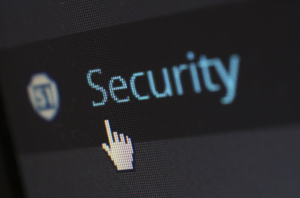Importance of Cybersecurity for Small Businesses
Why is Cybersecurity Essential for Small Businesses?
It seems that everyday in the news we hear about a company that has been a victim of Cyber attack and thus exposed thousands or millions of personal records to people with potentially malicious intent. Whereas large companies have the resources and complexity to protect themselves against Cyberattacks, small businesses do not. Even large businesses, such as Target have found themselves in the position of being attacked. In fact, the International Data Corporation believes businesses will spend over $100 billion dollars on Cybersecurity software in the near future. Small businesses are actually more likely to be attacked than larger businesses, but we do not hear about it in the national news because of their size.
Complicating this threat is the paired development of new technologies and increasing numbers of people sharing information online. Many of these technological innovations have afforded businesses an easier way of doing things, but they do not always have the most secure interfaces. Employees often do not realize the vast peril in sharing certain information on various platforms. This article will point out some of the impacts of Cybersecurity for small businesses.

Loss of Income
Whether it is from having to respond to a Cyberattack or from losing business due to the attention around being the victim of an attack, small businesses will often experience a loss of revenue as a result. Protecting against Cyberattacks does incur cost and many small businesses do not have the financial capital or business awareness to realize that they too are at risk for a breach of Cybersecurity. The consequences of this can be devastating to small businesses who do not have the capital or resources to handle a Cybersecurity breach.
Hidden Reporting
There is a debate in the technological world between reporting bugs or potentially vulnerable layers and sweeping these under the rug. Many manufacturers and companies do not want their bugs reported because they are worried about their reputation and losing a competitive advantage. This means that researchers who might find these issues are encouraged to not report potential problems that they have identified. This is similar to when the tobacco industry fought warnings on cigarettes or the labeling of food as organic. Small business owners are often at the mercy of the manufacturers to accurately display and alert them to products vulnerable to attacks. The current structure means that these warnings are withheld.
Employee Actions
Unless employees are all technically advanced, they will often not realize the potential impacts of sharing private or secure company information online. Compounding this issue is that they also do not know which websites might be considered risky or how to read between the lines to see what data is potentially being collected. Many small businesses do not have any sort of guidance for employees in knowing how they can use social media or access certain websites at work. For example, many threats come through emails that look like they could be legitimate. This impact could be devastating for small businesses who might not have the training to educate employees or the software to conduct proactive awareness of these issues.
The most common way that small businesses are impacted by Cyber attacks is through bad emails. Even with the best filtering systems, employees are on the receiving end of phishing messages.
Online Banking
Online banking has made things much easier for small businesses. The mobile responsiveness and ability to conduct most banking actions without actually being near a bank save a lot of time and also allow the business to keep close tabs on their financial resources at all times. However, this type of banking is not without risks and by not using safeguards when engaging in online banking, the business risks having some of their most vital data exposed.
Internet of Things
Data informed decisions are an important tool in making educated moves for the benefit of the company. Much of this data comes from the technological apps and tools we use every day, otherwise known as the Internet of Things. The Internet of Things include items such as GPS, cameras, and medical data and sometimes it is even hard to determine if these items are actually connected to the internet.
There are automated programs that track the location of these devices and then attempt to hack them using the admin credentials that come with the system. Users normally think of changing the password to their online email, banking, and other logins, but do not change the password on their devices.
Reliance on Algorithms
There has been a lot of attention paid lately to artificial intelligence, but we have been relying on tools such as algorithms for a long time to make work easier and help systems to operate. Every year, our reliance on algorithms increases and we are currently in a situation where algorithms work on top of each other and nobody is really sure of the consequences of these actions. There is a lot of code in algorithms and it is important that there is a human element to monitor what occurs with algorithms. Hackers and other criminals can infiltrate the algorithm operations and cause devastating effects. Small businesses might not have the resources or expertise to have someone monitoring the algorithms they use.
Outsourced IT
Most small businesses, unless they are technology companies, will outsource their IT services. When this occurs, the IT company will normally service company devices through a remote session. This can be very handy for the IT professional to see what is going on with the machine. However, this also presents a prime opportunity to hack and infect the machines. Even if the IT company has sufficient security protocols in place, this does not do much for the devices owned by the company being serviced.
Lack of Awareness
Many small business professionals simply do not know about the various ways that they can protect themselves and their business from Cyberattacks. The impact of this is enormous because these businesses might be doing a lot more to protect themselves if they simply knew the latest in Cyberattacks. For example, many small businesses will have antivirus protection. This protection only works, however, if there are attachments or other files to detect as being faulty. The majority of email attacks now occur without any files.
Paying Ransoms
Most people know of paying ransoms from kidnapping cases, either in real life or in the movies, but many small business owners will have to pay ransom in the event that their technology and data is hacked. They do not have the financial or legal resources to get out of the situation without paying a ransom.
Viral Spread
The concept of viral spread happens when many small businesses either use the same services or are suppliers to a large company. The malware or other attack might begin at one small business, but when they use or share the same services then this can easily spread to other small businesses. If the business provides a service to a much larger company, the hackers could also use the small business as an entryway to the larger company.
Ease of Hacking
Another impact for small businesses is that, quite simply, they are very prone to a Cyber-attack. They do not have the resources or knowledge to make it challenging to hack them. Most Cybersecurity criminals are not the masterminds that you see on TV. They are simply throwing many cards at the wall to see which one sticks. When small businesses make it easy to be attacked, then they become victims.
Business Closing
Believe it or not, up to 60 percent of small businesses will close within six months of an attack. This is probably the impact that small business owners do not want to hear about. However, most small businesses simply do not have the resources or staff ready to defend against Cybersecurity attacks. Working with a managed service provider can give businesses the protection they need while at the same time allowing the business to focus on their core strengths. There are small steps that businesses can do to make sure that they are doing everything possible to prevent a Cyberattack, and ultimately, prevent the business from closing.
Small businesses are a huge part of the economy in the United States. They keep local communities thriving and rely heavily on the entrepreneurial spirit to drive them forward. Unfortunately, Cybersecurity attacks can stop a small business regardless of how successful or established they are. The impact is devastating financially but it also harms the brand and image of the company. People place a high degree of trust in small businesses and might not even realize the amount of data they are handing over until a breach happens. The best thing a small business can do is take preventive steps to stop a Cybersecurity attack before it even starts.



